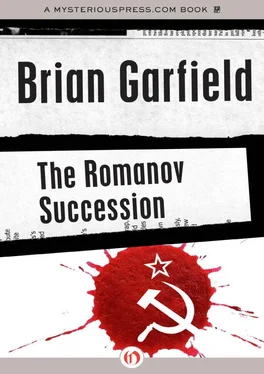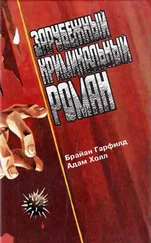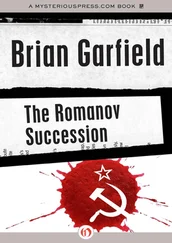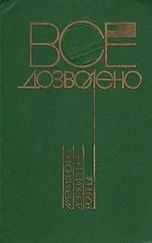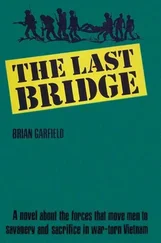Now he heard Sergei talking to someone behind him: “There must be a driver and fireman there. Get them.” He was talking about the rear locomotive, the intact one.
Four men. The train had carried a total of four men: two locomotive engineers and two firemen.
He imagined he heard Vassily’s laughter A short burst of rapid fire. He didn’t turn to look. In a little while Sergei came back to him, walking with an unhealthy lurch along the roadbed as if a deck heaved under him. Sergei hoicked and spat. “Both of them ran for it. They were armed. We had to shoot them down.”
Sergei’s soles gritted on the snow. Alex saw the gloved palm flashing but he didn’t stir to avoid it. The hard slap rocked his head to one side.
He blinked and lifted his free hand to his cheek. Sergei pointed—the crest at the head of the railway grade.
He turned his dazed face that way. Nothing in sight but now he picked up the sound.
“Tanks.”
It shook him loose: galvanized him. He raised the tommy gun overhead. “The locomotive.” And began running toward it because if there were tanks ahead of them there would be tanks behind and perhaps coming in through the forest on either side as well and they wouldn’t send tanks alone without infantry to cover the gaps. It was a complete trap and the Soviets had waited until they were certain everybody was caught in it and now they were moving in for the kill.
But they had counted on the train being disabled and part of it wasn’t and that might provide an edge.
His troops ran forward in little knots, clustering on the tracks and leaping over the debris, homing on the chuffing steam engine. At the crest four T-34S loomed in line abreast and he saw the muzzles of their turret guns swivel and depress.
“Mortar. Shoot to blind them.”
It wouldn’t stop a tank but it could throw up spouts of snow to render the tanks’ spotters temporarily blind. The mortarman lodged the base of his pipe against a steel brace on the side of the locomotive and Alex waved his men forward, counting heads. He hadn’t lost any people. No casualties: no battle. The battle started now.
“Get aboard—find a handhold, get aboard.” He was leaping up into the cab then and Sergei was tossing his gun aside and reaching for the shovel but the tender was gone and there was no coal except a few handfuls in the scuttle and when Sergei had poured those into the firebox and slammed it shut he said, “It won’t take us far.”
“As far as it can.” He rammed the lever right over as far as it would go and released the brake.
The mortar went off softly, almost reproachfully. Then before its round landed one of the tanks opened fire.
The wheels spun on the cold rails and the engine moved with gasps and lurches; he ran the lever back down to slow speed in the hope it would get better traction. The T-34’s seventy-millimeter shell erupted somewhere in the snow beyond the boiler; he heard the great roar of it but didn’t see it. The muzzles were traversing now, the tanks grinding forward and starting to shoot in earnest: range about a thousand yards. With long guns they’d have blown the locomotive apart with the first half dozen tries but the T-34 carried a stubby antitank gun and it wasn’t much for accuracy. All these calculations ran unemotionally through his mind in a split instant of time. The wheels had purchase now and he ran the lever through three notches to half speed. The locomotive was moving—very slow but it was a downgrade and there was no load, no train to drag; she picked up speed inexorably. Fifteen White Russian soldiers clung to her—crowded into the cab, hanging on the ladders, perched on footholds. His perception of scene and events was fragmented and a significant part of his mind was in shock but he was taking the right actions, doing things out of instinct and as long as he could function under this intuitive motor power he’d be all right. He had no doubts: he’d got them into this and he’d get them out.
Sergei spoke sharply. He flicked a glance to his left out the square steel opening beside him. He saw them in the trees beyond the cut: vague shapes, fitful movements in the forest. Infantry. He counted three tanks among them, grinding forward, smashing small trees down.
It was the same to the right but he wasn’t concerned about those and he was barely aware of the earsplitting whup and slam of 70mm incomings and the mortar throwing back its pitiful replies. The locomotive had momentum now and it was accruing fast. They had a jump on the infantrymen and they were rolling faster than a man could run in the snow. The Red infantrymen were opening up with small-arms but the range was four hundred yards or more and they were shooting at a moving target through trees; he heard one or two jacketed slugs whine off the steel but most of it was going wide or being deflected by branches.
He had her in reverse and he put full speed on. On the downgrade she’d be capable of doing ninety miles an hour with a fully hot boiler but the last of the coal was burning now and she wasn’t getting up anything like top speed. She was going backward and there was nothing in front of his face but wind and the slow curve of the sloping roadbed and what he was afraid of was what might appear there below them on their line of travel.
Sergei reached for the tommygun slung on Alex’s shoulder. Alex felt it when Sergei rammed a loaded magazine into the weapon. Then Sergei tapped his shoulder and got down in a crouch with the rear half-wall of steel for a parapet. It made a wall of thin armor three feet high across the back of the reversing engine: enough to deflect rifle fire but no proof against a tank’s gun.
Then Alex snapped out of it. The dreamlike state went. He saw everything clearly and with reasoned comprehension. The locomotive ran backward down the rails, bulleting toward a gradual curve beyond which anything might be approaching—very possibly another train or a pack of tanks. Behind him four T-34S were pursuing the locomotive in a losing race, their cannonfire falling behind, lifting great booming divots of snow and soil. On either side of the tracks the tanks and infantry were closing the trap but they were too late, the locomotive had got outside their circle and they were closing an empty fist.
In that period of uncertain semiconsciousness he had got them out of it. They’d escaped even if it was only until the next bend of the track. It wasn’t much but it was a small triumph and he said, “All right, Sergei. I’m all right now.”
Fifty miles an hour or better and they roared into the down hill bend.
It was blocked of course. Tanks—three of them climbing the grade, their treads skittering on the snow.
One of them was coming straight at him. Straddling the rails.
Collision course.
The mortarman’s head rocked back. Fear disfigured his face. His stare pleaded.
Alex roared at him:
“ Shoot !”
It was a game of raw courage—the challenge of the ultimate bluff: who would give in first? But Alex had the advantage. It was eight hundred yards—half a mile—and when he didn’t cut power and jam on the brakes instantly it meant there wouldn’t be time to stop anyway and if the tank didn’t get off the tracks that was that.
It took the tank driver a long time to make up his mind and in the meantime the guns of all three T-34S were firing. Alex’s mortar kept splashing snow in their eyes and the two outboard tanks were slithering in deep loose snow and every time their guns fired they were knocked askew by the recoil and the mortar explosions made it hard for them to line up again. It was the tank on the rails that was the threat because it was no good mortaring in front of it: that could rip up a track and derail the locomotive.
Читать дальше
